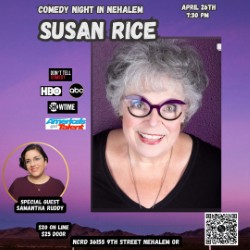By Andrew Jenck
Few movies frustrate me more than films that have such promise and risks, only to fall completely flat; to the point where I’d rather see something that was completely studio driven in some cases. Bearing to witness creative potential and interesting ideas wasted on an unclear vision and a weak script only makes a bad movie even harder to sit through. And… wow, is A Wrinkle in Time a waste; an at-times visually gorgeous, ambitious feature that does not have the mind or direction to achieve its goals and instead ends up being an insulting mess.
The story centers on a girl named Meg, played by Storm Reid, who’s still mourning over the sudden disappearance of her NASA scientist of father (Chris Pine) and struggles to fit in at school. However, her life soon changes when her brother comes across three supernatural “Ms.’s” who can teleport themselves across the universe who can help them bring back their father. However, things get complicated when they discover Meg’s father has been trapped in an entity known as The IT, a representation of all human faults, and must venture into The IT, and face its illusions and supernatural dangers.
Though I have not read the original novel of the same name, popular consensus considers it one of those inadaptable books, which could explain the film’s structuring issues. The screenwriters fail to realize that what is written can sound awkward when said out loud, hence the actors’ delivery feels mostly awkward, and the dialogue consists of clichéd quotes your aunt would post on Facebook. When adapting a piece to a different medium, certain changes need to be made. As such, direct quotes from a writing style of the 1960s isn’t going to sound good in a movie in 2018; especially when Meg is calling her brother Charles Wallace forty times. There are also some noticeable plot holes, such as the Ms.’s telling Meg they can’t transport to a certain place, but Meg’s will somehow causes them to do exactly that. If this was an issue with the book, the screenwriters should’ve improved upon the source, which I doubt they did in any sense here.
Still, writing flaws could’ve been overlooked by some extent if the characters were engaging enough, which is unfortunately its weakest link. Apart from Meg, the film never allows us to understand the characters from the start of their journey and characterization will be thrown at you out of left field. The characters should grow and change throughout the journey, but here, the film will come to a complete halt for the sake of character development. Some arcs don’t even feel finished or built up, as we see the struggles of one character who only had thirty seconds of screen time prior. The Ms.’s range from dull to annoyingly whimsical, there’s a quasi-love interest for Meg that serves no point to the story, and Charles Wallace’s obnoxiousness and failure of an arc could make up an entire review. It’s a real shame as the message of accepting yourself, flaws and all, is rather unique for films in general. I just wish the characters were strong enough to carry the message all the way through.
A Wrinkle in Time can’t even qualify as style over substance, as that style is a mix of made up, unconvincing CGI and some admittedly impressive practical effects. Director Ava DuVernay has not helmed a film at this scope and budget before, which would explain how most of the effects can look unfinished. Maybe DuVernay was rushed in production, as she does offer some interesting visuals and shots and the color scheme is vibrantly pleasing. In addition, there are some cool visuals and interesting environments. Unfortunately, any creative sparks of hers are put out almost immediately with any attempt at whimsy or intensity; something that Disney usually does in spades. I give DuVernay credit for her ambition; she just didn’t have a clear blueprint of where she wanted to take her ideas.
Apart from some interesting designs and good performances by Pine and Reid, A Wrinkle in Time is a disappointing failure on multiple levels. A couple more drafts and a better handling of production may have resulted in a genuinely good film, one that could encourage Disney to take on more risky projects in its live action department, as opposed to limiting the department to remakes. I really wish it could’ve been good, but whenever it showed potential, it wasted it.

